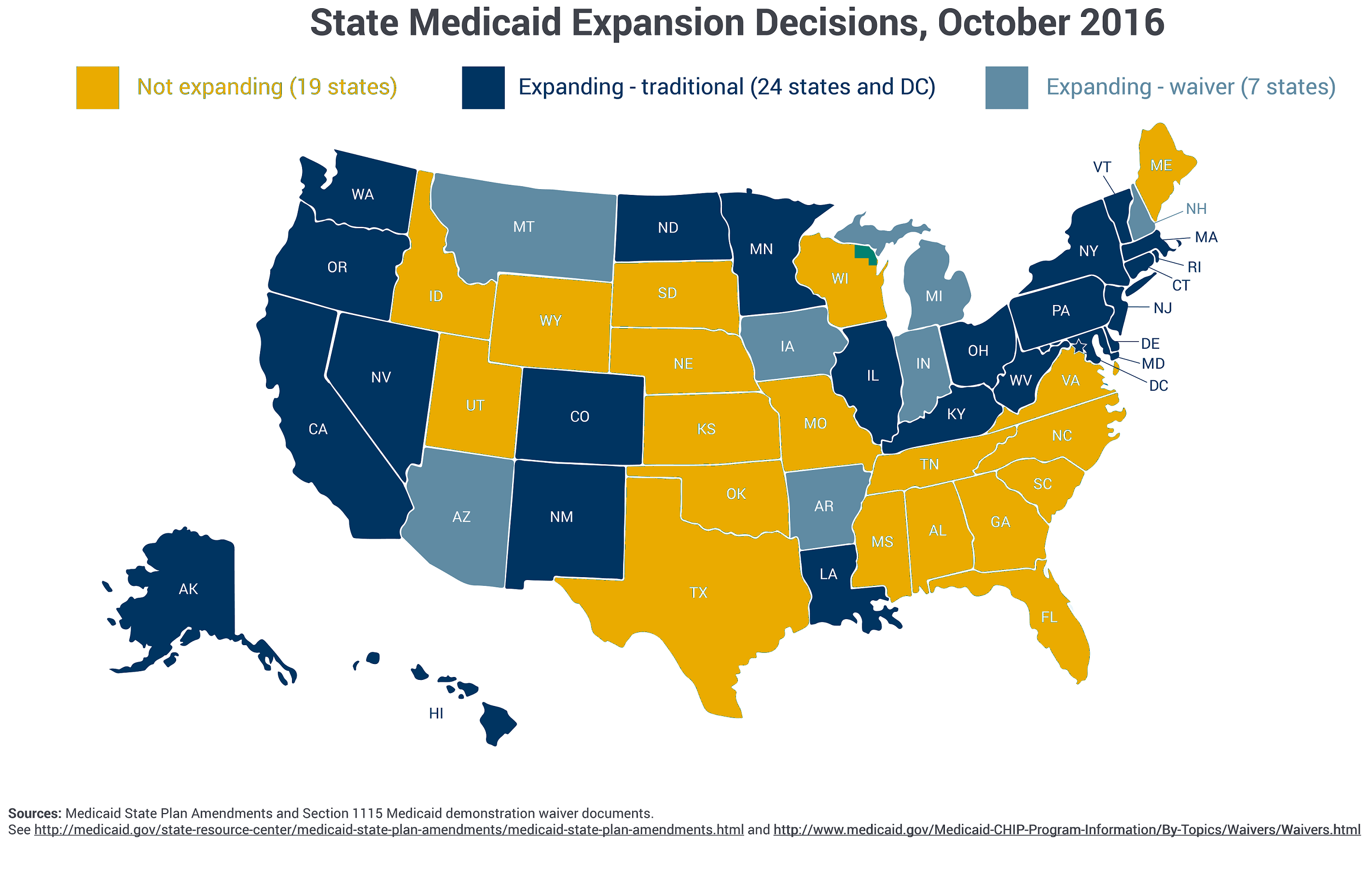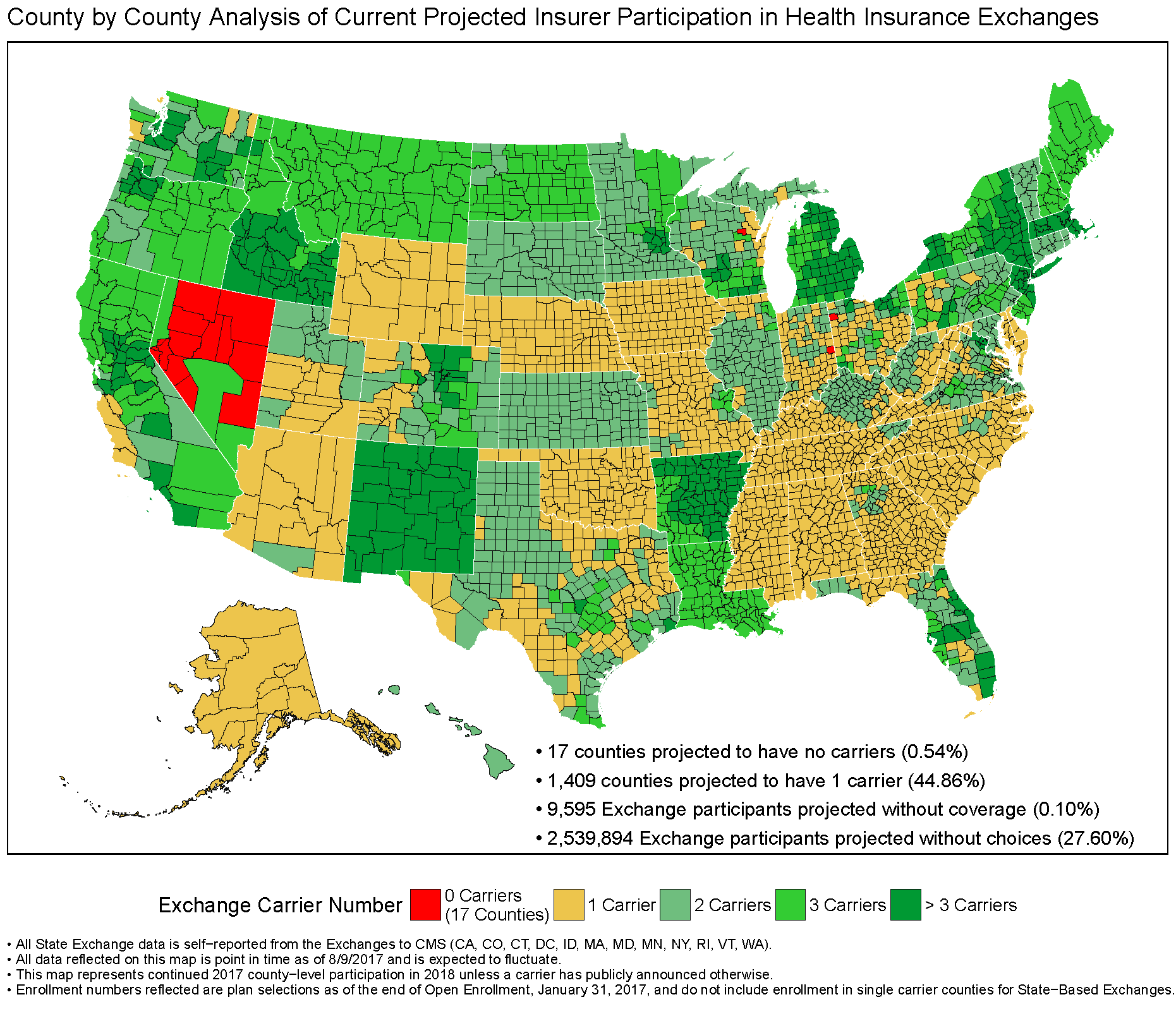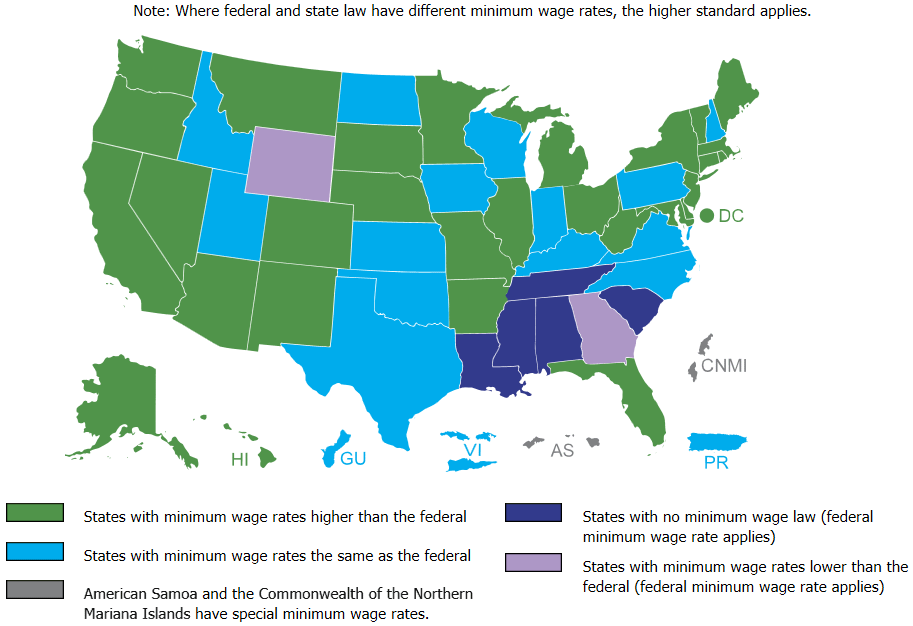The ACA and working America: Medicaid expansion
A week or so ago we saw a mid-Western couple on the news. They were at a free pop-up clinic because they could not afford health insurance, and earned $100 a month over being able to qualify for ACA support. She was clear they were struggling to get by, meaning they needed that $100 for daily essentials.
She was just as clear on Washington politics. After the ACA was initially passed, the Congress couldn't get their act together to fix it to work for them. And now that there was a new administration, the Congress still couldn't get their act together to fix the ACA to work for them.
But we were left asking, did she understand that the Congress under the new administration planned to dismantle the ACA and gut Medicaid — not expand eligibility or subsidies?
Income levels
This sample is taken from the North Dakota web site, a state which elected to expand Medicaid under the ACA.
| Family Size (1) |
Full Coverage for Entire Family (2) |
Medically Needy -
Aged, blind, disabled and families who may be responsible for a portion of their medical bills (3) |
Children Ages 6-19 and Medicaid Expansion (4) |
Pregnant Women and Children to Age 6 (5) |
|---|---|---|---|---|
1 |
$517 | $834 | $1,386 | $1,527 |
2 |
$694 | $1,123 | $1,867 | $2,057 |
3 |
$871 | $1,412 | $2,348 | $2,586 |
4 |
$1,048 | $1,701 | $2,829 | $3,116 |
5 |
$1,226 | $1,990 | $3,309 | $3,645 |
If we read this right, expansion raises the maximum income level to still be eligible up for all families to the same level whether or not they have children (compare column 2 to column 4).
We can see that for families without minors, the maximum income level was raised significantly — to the level it would be with children in the family. Still, for those affected, say a family of four with children over 19 but still eligible for family coverage, that's an increase in maximum income from $12,576 a year to $39,708. One can argue whether or not that is a living wage to support a household of four, but it would certainly become non-living were it needed to pay for unsubsidized health insurance. Indeed, any health insurance.
Returning to the couple we saw in the news, $1,867 a month maximum income to still qualify for expanded Medicaid is an awfully low bar. That's only $22,404 a year, barely scraping by, where even $100 a month can make a huge difference.
We are confused as to why Republicans would want to do away with Medicaid expansion, which provided coverage to those earning up to 133% of the Federal poverty level, when many Republicans supported a bi-partisan plan in 2005 to open a health care clinic in every county of every state which to provide free health care for anyone earning up to 200% of the Federal poverty level. A sliding scale would apply above that. If that same income level had been applied to the Medicaid expansion — previously supported as qualifying people for free health care — the couple we mentioned would have easily been covered. The current poverty level is $16,240 for a family of 2. Two hundred percent of that is $32,480 a year, ten thousand dollars more a year in income than the couple was earning and they would still be eligible for fully funded Federally funded health care.
County hospitals, many of them funded by Medicaid through their patients, would have been devastated in the Republican repeal of the ACA. We have to ask, when did Republicans stop caring about the health of America's neediest?
States which didn't expand Medicaid
What did the states which refused Medicaid expansion give up? ACA revised and expanded Medicaid eligibility starting in 2014. States that wished to participate in the Medicaid program are required to allow people with income up to 133% of the poverty line to qualify for coverage, including adults without disabilities or dependent children. The federal government would pay 100% of the cost of Medicaid eligibility expansion in 2014, 2015, and 2016; 95% in 2017, 94% in 2018, 93% in 2019, and 90% in 2020 and all subsequent years.
The Federal government reports that "in the 26 reporting expansion states, there were 14.2 million enrollees in the new [Medicaid-covered] group. Of these, 77.8 percent were newly eligible individuals and entitled to the 100 percent federal matching rate."2 Put simply, in that half of the United State which participated in ACA Medicaid expansion, 11 million economically struggling Americans received fully-paid for health care.
Looking at a map of expanded, non-expanded, and still considering states3:
 Orange = refused Medicaid expansion
Orange = refused Medicaid expansionWe'll talk more about this, but there seems to be a pattern of
- states not accepting Medicaid expansion,
- states where market uncertainty and Senator Marco Rubio's quashing of insurance for health insurerers hit with losses owing to high payouts has led to providers pulling out of the marketplace, look for concentrations of counties with only one provider in the health exchange, and
- no hourly wage protection:
We think back to another news item, a woman in Kentucky who owing to the expansion of Medicaid had gone to the doctor for the first time in ten years. She spoke through tears of gratitude, that she was returning to a normal life after being a shut-in for a decade. When asked who she voted for, she said Donald Trump. When asked why she voted for him when he promised to repeal her ACA health coverage, she answered she thought it was just "marketing," that he "could never be so cruel, to actually take away [her] health care."
Trump and the Republican-controlled House proved otherwise, and the Senate, nearly. We thank the three Republican Senators — Susan Collins of Maine, Lisa Murkowski of Alaska, and John McCain of Arizona — who placed morality, care for their constituency, and governing in a transparent manner above politics. Their votes put an end to the Republicans' panicked attempts to do something after voting dozens of times to repeal the ACA knowing President Obama would veto it.
Refuse Medicaid expansion? Vote to repeal the ACA?
FAILS Working America And, most of all, fails the working poor living paycheck to paycheck, and the disabled scraping by on benefits, both struggling every day for a better quality of life.| 1 | From North Dakota state site at www.nd.gov/dhs/services/medicalserv/medicaid/eligible.html, retrieved 12-August-2017. |
| 2, | At www.macpac.gov/subtopic/medicaid-enrollment-changes-following-the-aca/, retrieved 14-August-2017. |
| 4 | At www.cms.gov/CCIIO/Programs-and-Initiatives/Health-Insurance-Marketplaces/Downloads/2017-08-09-Issuer-County-Map-Update.pdf, retrieved 14 August 2017. |
| 5 | At www.dol.gov/whd/minwage/america.htm, retrieved 14 August 2017. |

 2018 projection at the Federal CMS site
2018 projection at the Federal CMS site Minimum wage laws at Federal Department of Labor site
Minimum wage laws at Federal Department of Labor site